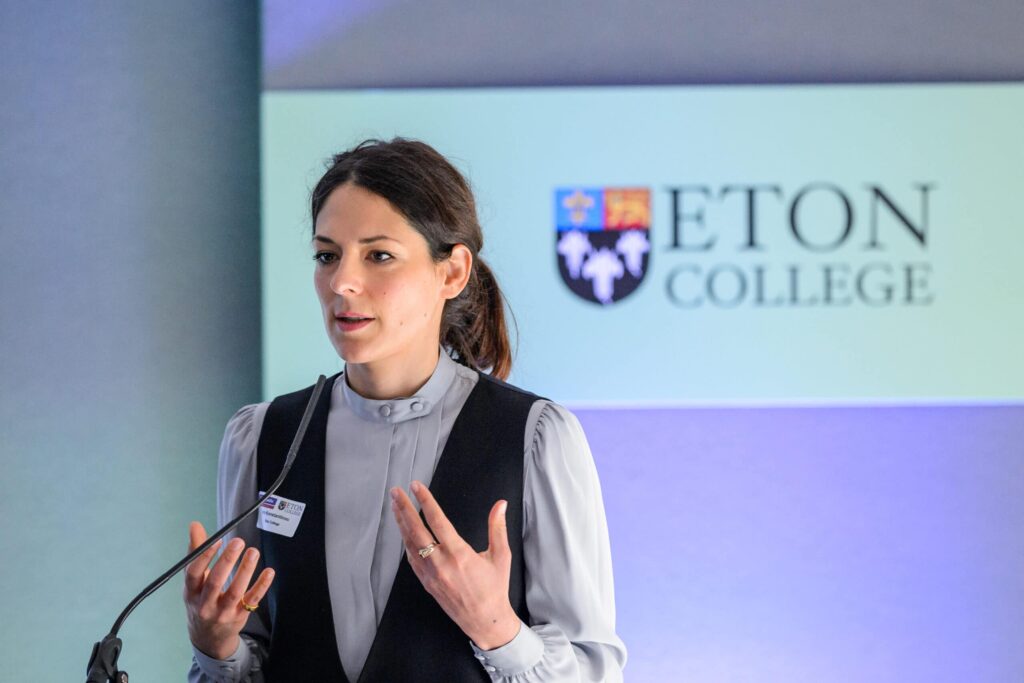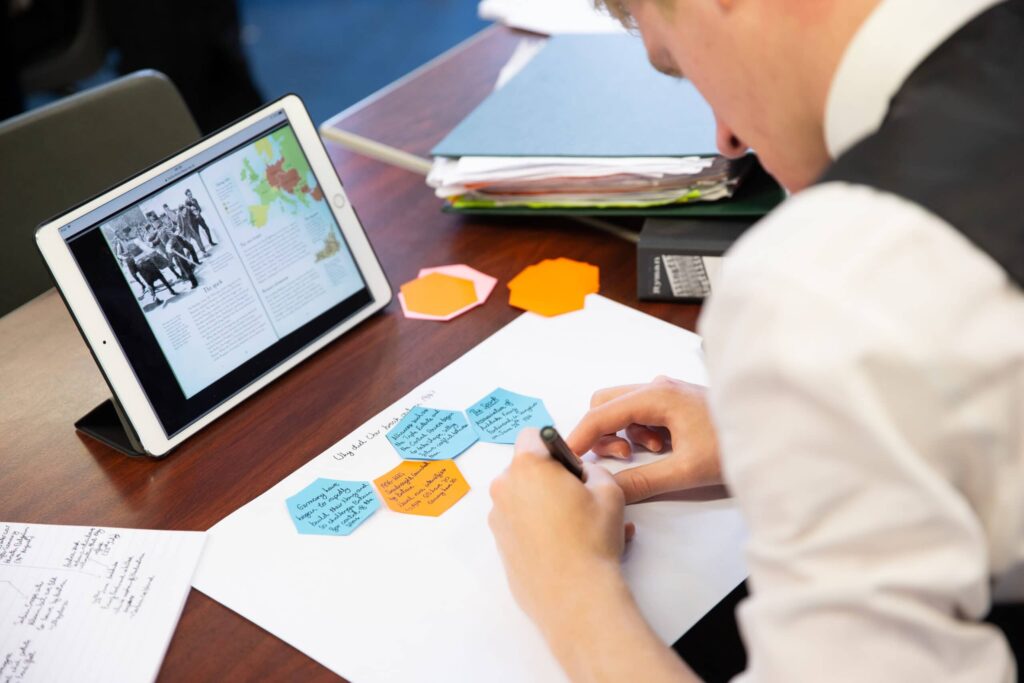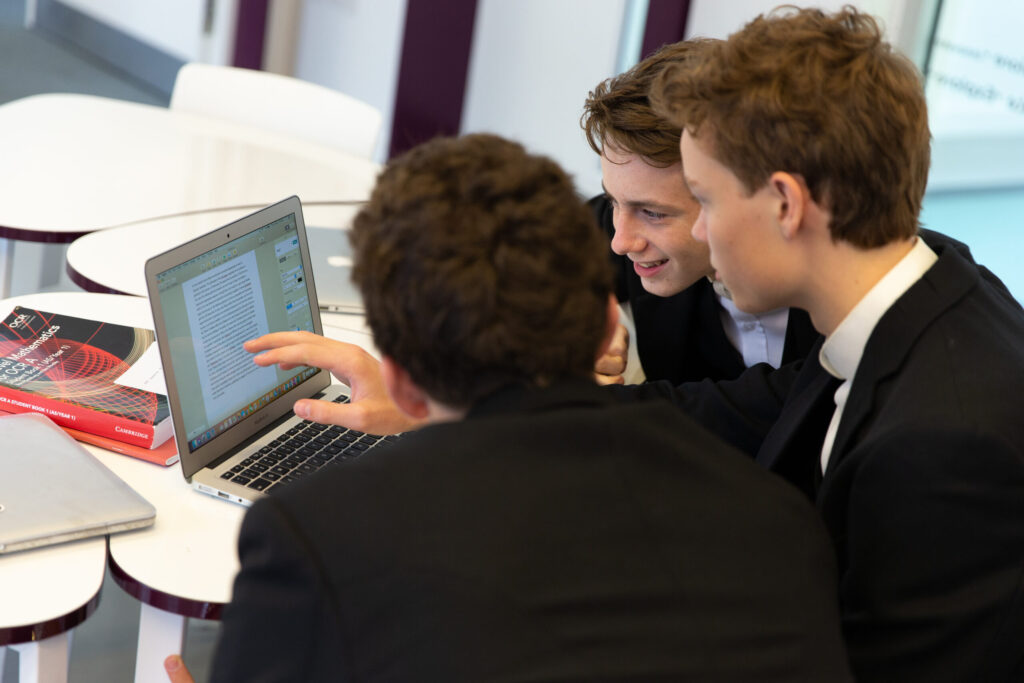Kincheloe and Steinberg (1998:2) promote the idea that ‘education should help one make sense of the world. At the same time, it should help students make sense of themselves as ‘players’ in the world’. They argue that, with this in mind, educational institutions should embrace the pedagogical assertion that good education prepares students as researchers who can read the world so that they can both understand it and change it. Thus, ‘students as researchers gain new ways of knowing and producing knowledge that challenge the common-sense views of reality’ (ibid.: 2). Following this educational paradigm, ‘Instead of memorizing unexamined, teacher-delivered data, students […] engage in the exploration of narratives (the grand stories) that shape their lives, devise (after rigorous study) revisionist interpretations of social and educational phenomena, and analyse canonized information within the frameworks of new contexts’ (ibid.: 4). Similarly, Bragg and Fielding (2005:105) make the case for collaborative enquiry within schools as a democratising process, which involves sharing and distributing leadership and encouraging all members of the school to be active ‘enquirers’. This, they suggest, should involve students; for ‘without the involvement of the students it is not possible to enquire effectively either into the learning and teaching processes or into the school itself’ (ibid.). This, therefore, is an argument of autonomy and agency as much as one of providing the methodological tools for conducting such inquiry.With these theoretical underpinnings in mind, we decided to offer an optional course for students in their penultimate year at Eton. The course allowed students to explore their own academic interests, while they were guided throughout the process. Eight students signed up to the course and during the Summer term, they learned how to refine their research questions, how to conduct interviews, design surveys, analyse data and suggest interventions on a school-wide level. Below the students describe in their own words their motivations and experiences engaging with the Research Option.
Freddie zu Wied
I was very curious of the emotional disposition of boys admitted to the school and a survey-based investigation seemed the best way of exploring this. I hoped to make the investigation as objective as possible. Having looked into various possibilities, it seemed that the RQ Test from Unselfie: Why Empathetic Kids Succeed in Our All-About- Me Worldby Michele Borba, Ed. D. suited the investigation best. It gave me the option to explore a range of variables, but I decided to focus on optimism and empathy. Collecting data from boys aged 13-15 (F to E Block) from two school houses, totalling around 40 boys, gives a varied and the school is home to an enormous variety of character types, it is also selective, with the process for admittance starting at 11-12 years old. I am interested into how this may affect the emotional orientation of the boys who are now at the school. I am still in the process of collecting data, but I am very curious to see how everyone will respond to the survey.
Mayowa Ayanbadejo
My research project is on the topic of consumption habits and their potential correlation with an education in economics. Economics and the flow of money through consumerism plays a key role in everyday life whether that be on a small scale – the purchase of a chocolate bar – or on a nationwide scale. Often depicted through predictable and logical curves and analysis, economics is heavily based upon the rationality of consumers and producers – which is known not to be true. Consequently, to examine the impact of a knowledge of economic theory upon irrational decision making, I planned a qualitative interview of 10 boys with the question – Does a knowledge of market failures affect consumers consumption habits, and if so to what extent? Coming into the project at the start of term I had no prior knowledge or skill in planning and conducting my own research. But, over the last 4 weeks through this research option I have gained an insight in to the strategy of research. I have had a lot of guidance and helpful expertise throughout this process which has helped me to co-ordinate this project to obtain meaningful results. This option has also allowed me to delve deeper into extra-curricular topics and questions which have been prevalent upon my mind. I have enjoyed this investigation and it has instilled in me a drive to undertake more future ventures.
Max Shakespeare
I dropped Chinese due to my frustration about my lack of progress and how impossible fluency seemed. I also went on a Spanish immersion programme one summer and the amount I improved in a week completely dwarfed my rate of progress within a school setting. These inspired me to undertake a project to find out what made the language learning experience so different and so much less effective in the classroom than in an immersion setting. I am interviewing a number of students who have become fluent in another language after birth and have experienced language teaching at school to highlight the limitations of teaching in the British education system. I am planning on presenting my results to the Head of Modern Languages in order to draw his attention as to what creates the best language learning atmosphere and how we, at Eton, can get as close to that as possible.




